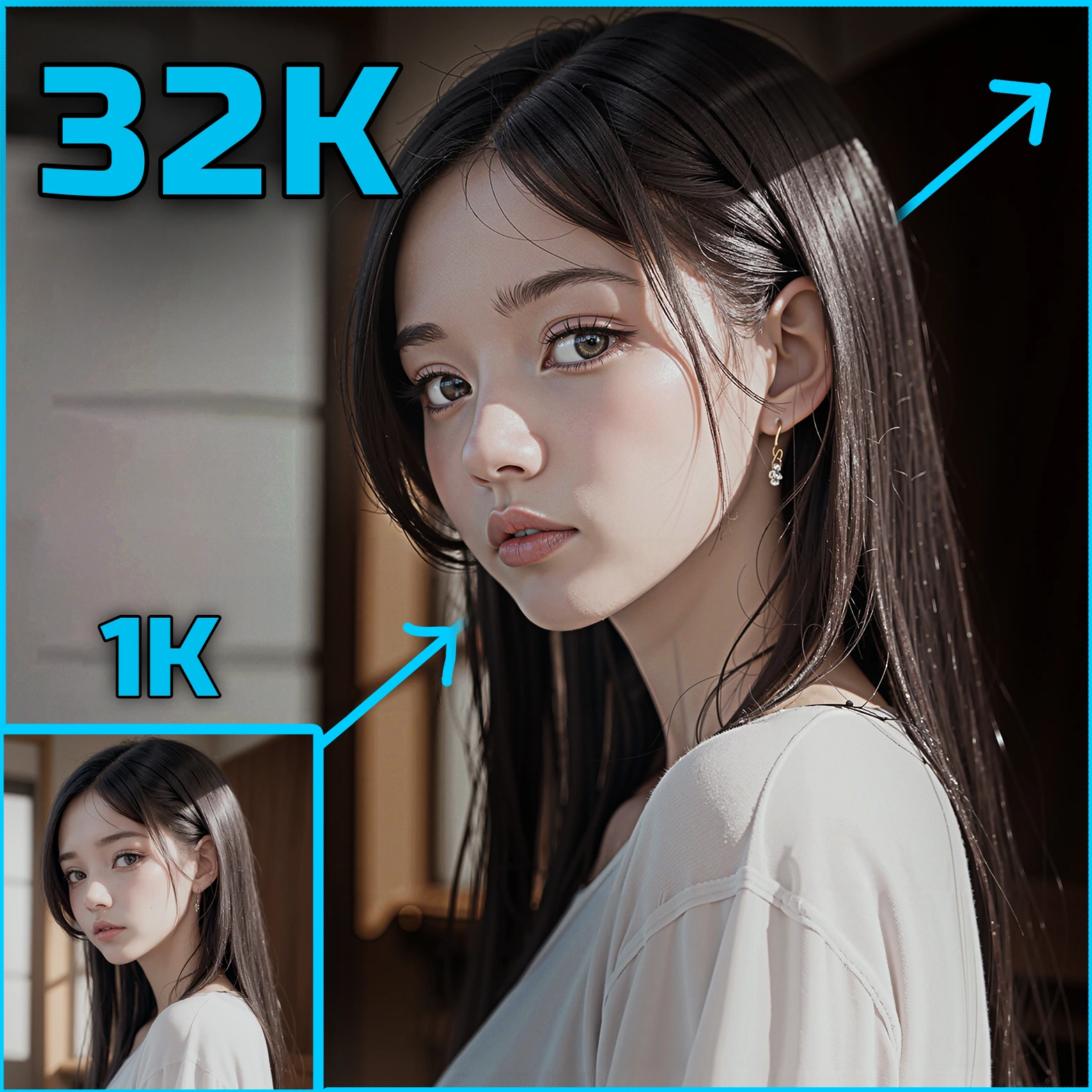ComfyUI Node: 💊 CR Random Weight LoRA
CR Random Weight LoRA
Category🧩 Comfyroll Studio/✨ Essential/💊 LoRA
Suzie1 (Account age: 2434days) Extension
Comfyroll Studio Latest Updated
2024-07-24 Github Stars
0.83K
How to Install Comfyroll Studio
Install this extension via the ComfyUI Manager by searching for Comfyroll Studio- 1. Click the Manager button in the main menu
- 2. Select Custom Nodes Manager button
- 3. Enter Comfyroll Studio in the search bar
Visit ComfyUI Online for ready-to-use ComfyUI environment
- Free trial available
- 16GB VRAM to 80GB VRAM GPU machines
- 400+ preloaded models/nodes
- Freedom to upload custom models/nodes
- 200+ ready-to-run workflows
- 100% private workspace with up to 200GB storage
- Dedicated Support
💊 CR Random Weight LoRA Description
Add LoRA instance with randomized weight for dynamic AI model creativity in generative art.
💊 CR Random Weight LoRA:
The CR Random Weight LoRA node is designed to add a LoRA (Low-Rank Adaptation) instance to a stack with a randomized weight within a specified range. This node is particularly useful for AI artists who want to introduce variability and randomness into their models, ensuring that the LoRA weights are not static and can change dynamically based on the defined parameters. The primary goal of this node is to enhance the creative process by allowing for more diverse and unpredictable outcomes, which can be particularly beneficial in generative art and other creative AI applications. By setting a stride, you can control the number of iterations before the weight is re-randomized, adding another layer of control and customization to your workflow.
💊 CR Random Weight LoRA Input Parameters:
stride
The stride parameter sets the number of iterations before the weight is re-randomized. This allows you to control how frequently the weight changes, providing a balance between stability and variability. The default value is 1, with a minimum of 1 and a maximum of 1000.
force_randomize_after_stride
The force_randomize_after_stride parameter determines whether the weight should be forcibly re-randomized after the specified stride. This can be set to "On" or "Off", with "Off" being the default. When set to "On", it ensures that the weight is always re-randomized after the stride, adding an extra layer of randomness.
lora_name
The lora_name parameter specifies the name of the LoRA instance to be added to the stack. If set to "None", no LoRA instance will be added. This parameter is crucial for identifying which LoRA instance you want to work with.
switch
The switch parameter controls whether the LoRA instance is active or not. It can be set to "On" or "Off", with "Off" being the default. When set to "On", the specified LoRA instance is added to the stack with the randomized weight.
weight_min
The weight_min parameter sets the minimum value for the randomized weight. This allows you to define the lower bound of the weight range, ensuring that the weight does not go below a certain value. The default value is 0.0.
weight_max
The weight_max parameter sets the maximum value for the randomized weight. This allows you to define the upper bound of the weight range, ensuring that the weight does not exceed a certain value. The default value is 1.0.
clip_weight
The clip_weight parameter specifies the weight to be applied to the CLIP model. This allows you to control the influence of the LoRA instance on the CLIP model, providing another layer of customization. The default value is 1.0.
lora_stack
The lora_stack parameter is an optional list of existing LoRA instances. If provided, the new LoRA instance with the randomized weight will be added to this stack. This allows for the creation of complex LoRA chains, enhancing the flexibility and creativity of your models.
💊 CR Random Weight LoRA Output Parameters:
lora_list
The lora_list output parameter is a list of tuples, each containing the name of the LoRA instance, its randomized weight, and the clip weight. This list represents the stack of LoRA instances that have been processed by the node, providing a comprehensive overview of the applied LoRA instances and their respective weights.
💊 CR Random Weight LoRA Usage Tips:
- To achieve more dynamic and varied results, set the
force_randomize_after_strideparameter to "On" and experiment with different stride values. - Use the
weight_minandweight_maxparameters to fine-tune the range of the randomized weights, ensuring that the weights stay within a desired range. - Combine multiple LoRA instances by providing a
lora_stackto create complex and interesting effects in your models.
💊 CR Random Weight LoRA Common Errors and Solutions:
"Invalid stride value"
- Explanation: The stride value provided is outside the allowed range (1-1000).
- Solution: Ensure that the stride value is within the range of 1 to 1000.
"LoRA name is None"
- Explanation: The
lora_nameparameter is set to "None", so no LoRA instance is added to the stack. - Solution: Provide a valid LoRA name to add an instance to the stack.
"Switch is Off"
- Explanation: The
switchparameter is set to "Off", so the LoRA instance is not active. - Solution: Set the
switchparameter to "On" to activate the LoRA instance.
"Weight range is invalid"
- Explanation: The
weight_minvalue is greater than theweight_maxvalue. - Solution: Ensure that the
weight_minvalue is less than or equal to theweight_maxvalue.
💊 CR Random Weight LoRA Related Nodes
RunComfy is the premier ComfyUI platform, offering ComfyUI online environment and services, along with ComfyUI workflows featuring stunning visuals. RunComfy also provides AI Models, enabling artists to harness the latest AI tools to create incredible art.


